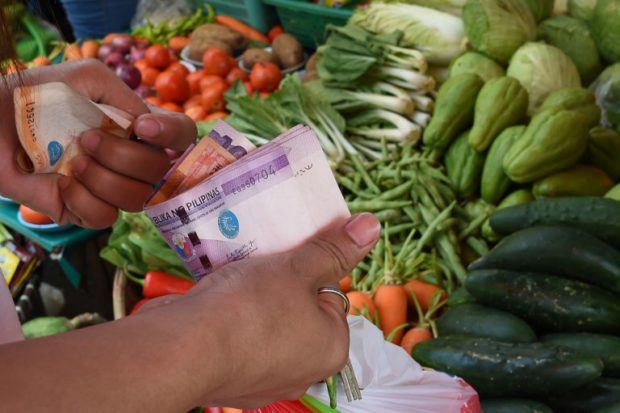Gov’t sees green shoots of recovery
MANILA, Philippines — High inflation seen persisting throughout the year and vaccine hesitancy may slow the Philippines’ economic recovery, but the government is still confident that a rebound from the pandemic-induced recession is just around the corner.
In an economic bulletin Monday, Gil Beltran, the Department of Finance (DOF) undersecretary and chief economist, noted the 20.7-percent growth in total external merchandise trade during the first four months to $57.83 billion, which was only 1.3-percent below prepandemic levels in 2019.
“Year-to-date export value is 5.1-percent greater than its prepandemic level while import value is 5.2-percent lower,” Beltran noted.
Beltran was optimistic of recovery in foreign trade.
“The arrival of additional vaccine supplies and the commencement of the vaccination for economic front liners will help the country sustain the gains in containing the virus and eventually on the way to economic recovery,” he said.
But UK-based think tank Pantheon Macroeconomics was less bullish, warning the Bangko Sentral ng Pilipinas (BSP) of a potential “inflation shock” during the second half of the year.
In a report on Monday, Pantheon Macroeconomics senior Asia economist Miguel Chanco said the BSP had “a blind spot to the upside risks to inflation still posed by oil prices.”
While the BSP last week hiked its inflation forecasts for this year and next year to 4 percent and 3 percent, respectively, due to upward pressures on oil prices as well as a recovering global economy, Chanco said these latest projections did not capture the potentially bigger impact of global oil price movements.
Food prices
“Much of the upside in headline inflation over the next two quarters is already baked-in. Housing and utilities inflation track changes in oil prices very closely, albeit with a three-month lag. In any case, the realized gains in oil prices point to a clear trebling of this component’s contribution to inflation through the third quarter, from 0.4 percentage point as of May,” Chanco said.
Also, Chanco pointed to “rapidly” rising global food inflation, posing a risk to domestic prices despite the government’s moves to ease meat prices through more imports under lower tariffs.
“This fails to account for the fact that the Philippines remains a net importer of many food products … These upward pressures will eventually land on the country’s shores, as local food inflation lags by approximately six months,” he said.
As such, Chanco said they projected the rate of increase in prices of basic commodities to jump to an average of 5.3 percent this year, above the BSP’s 2 to 4 percent target range and more than double the 2.6 percent posted last year.
Headline inflation averaged 4.4 percent as of end-May mainly due to expensive food, especially pork.
For Chanco, it did not help that the ongoing nationwide mass vaccination program remained lacking as far as implementation and procurement of COVID-19 vaccines were concerned.
Next to impossible
“We continue to believe it will be next to impossible for the country to achieve herd immunity next year, keeping the [BSP’s] finger off the trigger to normalize policy. So far, the Philippines has secured enough jabs to cover only 50 percent of the population, leaving aside the fact that supplies tend to be very lumpy,” he said.
Pantheon Macroeconomics last week projected herd immunity in the Philippines—85 percent of the population vaccinated to be better protected from the more contagious Delta variant—achieved by 2023, a longer time than most of its neighbors.
“Demand for shots likely will pose a significant hurdle, too, as the Philippines has one of the highest rates of vaccine hesitancy globally. The Dengvaxia scandal — antidengue vaccines which were found to increase the severity of the disease — still lingers in the public psyche,” he added, citing recent surveys showing only one-third of Filipinos were willing to get vaccinated as of last month.
* * *
Project Rebound is an advocacy campaign that seeks to help Filipinos overcome the crisis through relevant and timely information they can use to make informed decisions. It is supported by PayMaya Philippines, PLDT, Inc., PMFTC Inc., Shopee Philippines., Smart Communications, Inc., and Union Bank of the Philippines, Inc.
